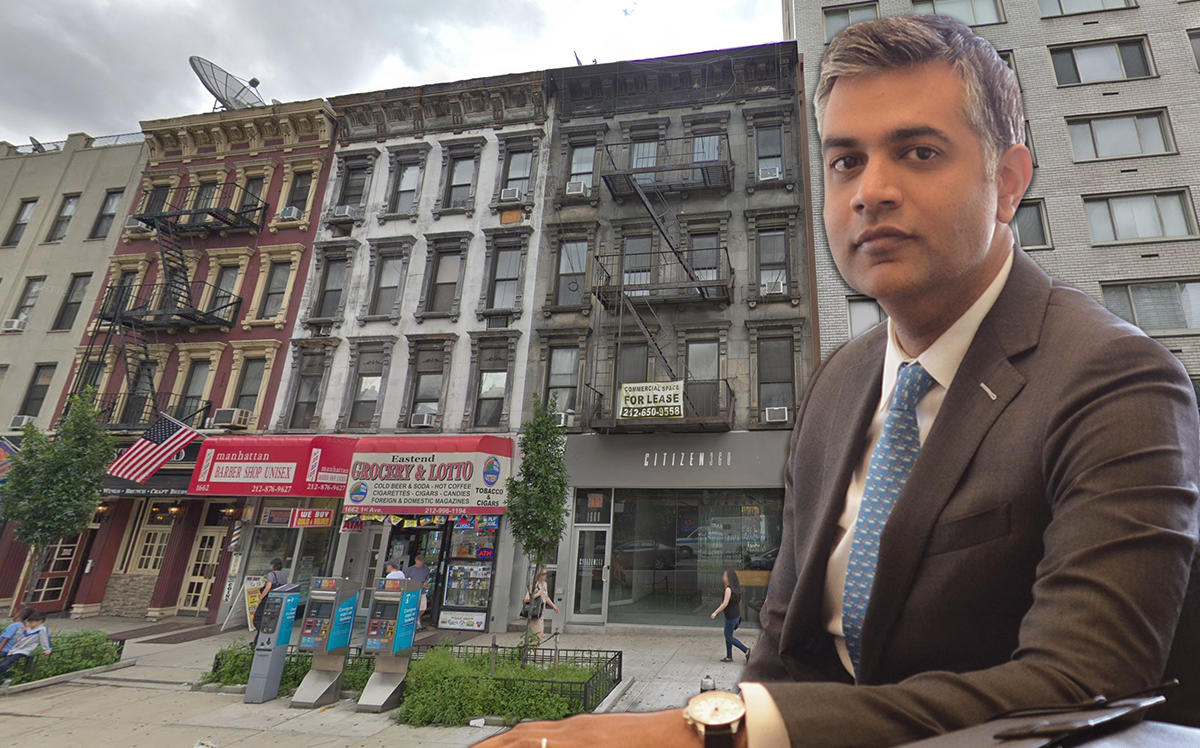Trending
Samvir Sidhu sues over squashed contract to buy Yorkville property
Plaintiff is trying to build an assemblage at the First Avenue site

An apparent affiliate of Samvir Sidhu’s Megalith Capital Management is suing the property owner of a Yorkville walk-up he’s trying to buy.
Suncore Group SA, LLC — of which Sidhu is the principal — alleges in its complaint that the owner of 1660 First Avenue wrongly scrapped Suncore’s contract to acquire the four-story mixed-use building.
Suncore, which had wanted an extension to close the deal that wasn’t granted, alleges that the owner did not negotiate in good faith.
“Hopefully there will be a resolution of it [the case] that’s satisfactory to both sides,” said Kevin Nash of Goldberg Weprin Finkel Goldstein, LLP, who is representing the plaintiff.
Megalith and representatives for the defendant entity, 1660 1st LLC, did not return requests for comment.
Suncore has been working to build an assemblage along First Avenue, according to the complaint, which was filed Monday in New York County Supreme Court. The company went into contract on the 1660 property, which sits between east 86th and 87th streets, in February for $12.5 million and provided a down payment of $937,500.
Nash said the company wants to acquire three or four properties for a new development, though he did not specify further.
But as the May deadline to close approached, Suncore asked the owner of 1660, whose principal the complaint identifies as Anthony Ventura, for an extension, the complaint states. Suncore has been having trouble closing on an adjacent property — null — and for an unspecified reason, Suncore wanted to close on both acquisitions around the same time, the filing states.
But with no guarantee in hand, Suncore took a precautionary step: It prepared to file for bankruptcy the day of the closing, should Ventura not give Suncore more time to close, the filing states. This is because Suncore knew that by filing for bankruptcy, Suncore would get an automatic 60-day extension to close, according to the complaint.
Nash said that filing for bankruptcy is a “very viable, available option” in such a case.
“To take true advantage of it, you have to get the case through bankruptcy within 60 days, which is possible. Tight, but possible,” Nash said.
At the closing meeting, Ventura allegedly asked Suncore not to file for bankruptcy and the two decided to negotiate again the following day, after the technical deadline. In the end, negotiations fell through, and the owner eventually found Suncore in default of its contractual obligations because it did not close on the deadline, the filing states.
Suncore now wants a judge to void this voiding of the contract, because Ventura allegedly did not negotiate in good faith and deprived Suncore of a chance to file for bankruptcy.
“They thought they were going to get an extension the following day,” Nash said.
Suncore also gets technical in its complaint, by alleging that the deadline date and time — May 6, 2019 at 6 p.m. Eastern Standard Time — actually doesn’t count.
That’s because at that moment, New York — and the rest of the U.S. Eastern seaboard — operated under Eastern Daylight Time.
“Because a time of the essence provision can trigger a forfeiture of important contract rights, it must be precisely worded,” the complaint argues.




